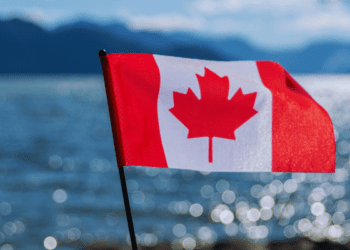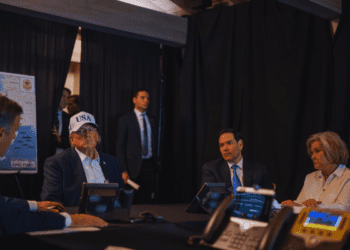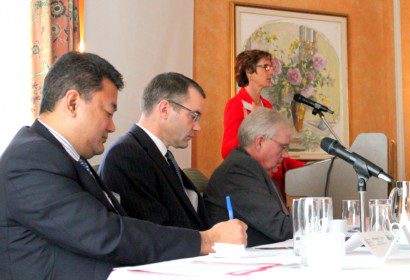Writing in the Globe and Mail, MLI Managing Director Brian Lee Crowley argues that if US president Barack Obama wants to benefit from finalizing the Trans-Pacific Partnership he will need Trade Promotion Authority. No party at the TPP will accept the risk of a final deal being negotiated in the halls of the US Congress, Crowley writes. The Globe ran an edited version of this column.
Brian Lee Crowley, Oct. 30, 2014
Why, oh why, does America make it so hard for its friends to help it?
Take the Trans-Pacific Partnership. This proposed trade deal is supposed to link like-minded countries around the Pacific, which is why 12 countries such as Japan and Canada (possibly soon to be joined by South Korea and even Taiwan) are at the table, but China is not. TPP is thus part of both President Barack Obama’s strategic pivot to Asia and the effort to pull the economy back into full growth. If you want to grow, trade vigorously with countries growing faster than you.
Canadians have occasionally noticed that when the Americans want something, they can be very impatient and even on occasion, a bit of a bully.
President Obama wants TPP to be done, but the goal has proven elusive. First it was supposed to be done by the end of 2013. Now 2014 doesn’t look much better. The Americans fume a lot about the inadequacy of the offers on the table.
But while the Americans are quick to point out the failings of others in the negotiations, they have consistently failed to address the biggest obstacle of all: Washington’s insufficient commitment to a deal.
That commitment is measured in one simple way: the so-called Trade Promotion Authority (TPA). This authority is in the gift of Congress and essentially binds that body to a yes-or-no vote on a final deal, no amendments allowed.
The reason TPA is so central is simple. Without America, there is no TPP, but unless Congress commits itself to voting the negotiated text up or down, the final round of negotiations doesn’t take place at the trade table; it takes place in the halls of Congress. And the negotiators won’t be the other governments party to the agreement, but rather American politicians and their constituents. Congress would love to be able to insert that last round of negotiations in the agreement unilaterally and then present it as a fait accompli that other countries can take or leave.
If you think about the logic of trade negotiations, that means that the other countries at the table — including Canada — will be extremely reluctant to put their best offers on the table. Without TPA, trade talks don’t conclude at the negotiating table. You must always be mindful of the extra concessions Congress may unilaterally extort from you.
Take a practical example. Suppose (perish the thought!) the US government said to Canada in these negotiations, “We’ll open our market for agriculture and food products, but in return we want you to eliminate your policy of supply management, which is a huge trade barrier to our eggs, poultry and dairy products.” Given the size of the US market, that might be a trade-off Canada would entertain, especially if Ottawa could say that it fought to the end to preserve supply management but was finally forced to get rid of it by those awful Americans.
But having made those concessions, Ottawa could be forced watch in horror as some coalition of farm belt senators gutted the US market access we had negotiated, while happily leaving our concessions on supply management in place. Congress can and would be ready to gamble that there would still be enough benefit to other countries to keep them from abandoning the agreement. No party at the TPP table who understands how Congress works will run that risk.
Interestingly one of the effects of American preoccupation with TPP is that a number of bilateral irritants are being linked with the success of these multilateral negotiations. It’s Washington’s way of upping the pressure. In Canada’s case progress on issues like Buy American, regulatory harmonization, border improvements and country of origin labelling are all being held up as Washington demands we do more on TPP before they’ll deal with our issues.
So you might think an American administration so impatient to conclude an agreement would be equally impatient to get Congress to get some skin in the game, but you’d be wrong. We’re several years into the TPP negotiations, but US Trade Representative Michael Froman says TPA should be “introduced” in Congress after the mid-term elections next week. That’s hardly encouraging given President Obama’s already uninspiring record with Congress. It could be too late, especially if he ends up an impotent lame duck after next Tuesday, reliant on the Republicans to complete his trade agenda.
TPP is a prize worth having. TPA, however, is the price America must pay to make it possible.
Brian Lee Crowley (twitter.com/brianleecrowley) is the Managing Director of the Macdonald-Laurier Institute, an independent non-partisan public policy think tank in Ottawa: www.macdonaldlaurier.ca.





